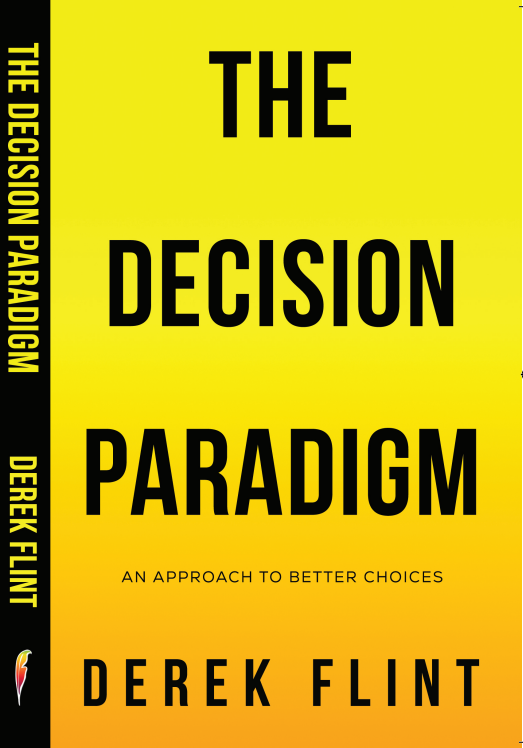
KBO? - if you know, you know…
We are a little different around here. We think differently. We challenge the norm. We keep going when it is that little bit harder than it was…
KBO provides that external scrutiny, and important honesty in what will be the best course of action for your training and development needs.
Using KBO provides a number of benefits, with an ability to operate as a true ‘critical friend’. Our unique, risk-based approach will help you make the right decisions to develop your people, and protect your reputation in an increasingly competitive world.
What does KBO stand for? Look up what Churchill annotated memos that he received with. It sort of sums up how we have to lean in to life, business and the world. We will help you do that.
The KBO Vision
To be a recognised and credible contributor to personal development, through effective coaching and training.
The KBO Mission
To enable people to be the very best version of themselves
SCROLL THROUGH TO LEARN MORE…
ONLINE EXECUTIVE COACHING
Be Better…
Executive coaching helps you improve. You have the answers within you, but to become the very best version of yourself requires time, and what I describe as “a mirror in a safe environment.”
Working with a Level 7 qualified Executive Coach provides clarity of thought, helps build pathways to goals, and makes you ask more of yourself than you would do if left to your own devices.
Our first session together is free of charge. You may gain enough from that one session to need little further assistance. If not, my rates remain some of the most competitive in the business.
With a ‘nothing to lose’ opportunity, is it time you gave coaching a look?
0044 (0)7882 021090
Testimonials.
I found this to be such a positive experience and although I feel I am quite self-aware already, I was still able to learn so much about myself. Everything that was discussed was confidential and I found it very easy to talk to Derek - conversations could be had openly and freely and I never felt there was any judgement.
It has shown me that I have so many more ideas and solutions than I realise, and has taught me how to unlock this within myself. Problem solving plays quite a big part in my job role, so being able to do that in an effective way is so important. The techniques I have learned can be applied to anything, both professionally and personally, therefore this coaching can be undertaken by anyone in any position.
I really do feel that this has helped me become a better version of myself. You do have to be prepared to put the work in, but its most definitely worth it! I highly recommend KBO Training and Coaching – thank you Derek!
Director - Finance Sector.

DECISION MODELLING
TRANSFORM YOUR DECISION MAKING
At KBO, we have 0ver 20 years experience in making both long-term strategic, and real-time, mission critical decisions.
We can develop your people to become supremely confident in the field of decision making. Our one day course gives your team the tools they need to pull together key information, prioritise and manage risk and develop effective strategies.
You will learn how to create solutions that are auditable and defensible, as well as develop your skill and agility in continual refinement and assessment of strategy to achieve the desired outcome.
Speak to us soon to discuss your needs. It may be the best decision you ever make before you have this course!
0044 (0)7882 021090
What are people saying about “The Decision Paradigm”?
“Fortunately our business doesn’t have many life threatening situations, but we do have to make well thought through decisions as directors of companies, equally important is the process of documenting the decision process.
There are many parts of the book that served as a good refresher in the decision making process, but equally there were many models and ideas that were new to me.
I recommend the book to anyone who seeks to gain a step by step understanding of not just why they made a decision but also how they arrived at the decision.”
Richard McNee- Chief Commercial Officer
“A valuable contribution on what it takes to make decisions amid complexity and under pressure. Lessons from the frontline of policing, drawn from hard won experience yet applicable for all leaders. The value for me was the practical application of Derek’s thinking.”
Langley Sharp – Author, “The Habit of Excellence”
“It's now five years since I graduated from RAF Cranwell as a Reservist officer and this book provided a timely and useful reminder of, and an expansion on, some of the principles they taught us to use.
A timely reminder to re-evaluate both company and individual Mission Statements, Visions, Values and Ethics.
The book offers an easy-to-follow guide to strategy planning (taking time to identify exactly what strategy is and isn't) and risk assessment.
The PODS model explanation was new to me but makes great sense and has multiple uses in business life as Derek explains. Allied with models I already use (SMEAC and IIMARCH), he offers a Swiss-knife toolkit of options to help with decision making.
A useful book which is well written and provides a great guide if you're new to the idea and a very useful reminder and development tool if you're familiar with some of the concepts.”
Chris Pearson, RAF Officer Reservist, Managing Director
“This book is a must buy for anyone joining the Police or wants to understand the complex layering of decision making. Very thought provoking. Great read.”
Steve Bradshaw, Retired Police Officer, Force incident Manager.
"Derek’s book is an excellent contribution about decision-making within the complex situations faced by the police, emergency service partners and the military. I would strongly recommend this book to those about to embark in a career in policing and equally for those working within policing as Derek provides valuable insight and guidance on the decision-making process.”
John Marriott - Academic.
________________________________________________-______________________________________________
When I picked up on the release of this book I was intrigued and keen to read. Derek and myself served in the police service together for a number of years and I know him well. He is well placed to write a book analysing decision making - an accomplished police trainer, Senior Investigating Officer in road policing cases and now a University lecturer. Who better?
This is a good read and is relevant to those who lead or are involved in investigations of all levels, to those who may be required to give advice to others or contribute to any decision making procedures . Derek sets out the need for clarity in documenting and recording decisions and highlights the pitfalls of potential litigation in failing to do so. He uses his experience and knowledge base to good effect and he can speak with authority on this subject. In many ways, it has quite an autobiographical feel to it, as it is not just a learning manual.
Derek introduces a new approach to decision analysis - ‘Problem Orientated Decision System’ - which encourages the decision maker to consider the problem in detail at the outset, document what was known and when, identify the direction and then record all of these stages accurately.
This book will interest those who wish to supplement their skills and their desire to maintain their discretion and integrity. Accountability now, and often years down the line, is crucial as is the accuracy of record keeping.
My copy is now marked up with notes to remind me to discuss them with Derek when I next see him! Good value and a very good read”.
Rob Kinrade - CEO, EXPOL
The decision paradigm is one of those books that you read and nod. Having worked in the public sector I can see evidence of poor decision making. Derek tackles this by offering us the PODS tool which enhances decision making. We make decisions daily and some very important ones in life and work so this book will add to your knowledge library and positive outcomes . I recommend this and look forward to the sequel
Ravina Talbot - Educator

Us.
Derek Flint is a retired senior police officer, with over 20 years experience in training and development.
He held a number of high profile leadership posts, across staff development, project management, and high risk operations . Uniquely he was also force PR and Media Officer, and has a decade of experience in that field. More widely, he has also held company director positions, providing a valuable insight into the modern commercial world.
He is a qualified educator, holding a Cert.Ed. from Manchester Metropolitan University, and is experienced in training needs analysis, training design, evaluation and delivery A lecturer at The University of Central Lancashire where he is also a student researching Elite Performance, with particular interests in the fields of decision making, junior leadership and psychological safety in the workplace
As an Executive Coach, he is qualified through the Institute of Leadership and Management, holding the Level 7 Certificate in Coaching and Mentoring.
Professional Interest

What we offer
KBO is able to evaluate and advise on your training strategy, developing it to achieve your personal and business goals.
Derek is a highly engaging lecturer and facilitator in his own right, but where statutory or technical requirements exist, he is able to source specialist trainers to meet any need, ensuring the very best solutions are delivered.
Executive Coaching
Our Executive Coaching style is to be supportive yet challenging. We are able to help you introduce Executive Coaching, and its benefits, to your organisational strategy. Its purpose is simple – to make your people better at being ‘them’. Through coaching, we create opportunities for individuals to maximise their personal effectiveness, catalysing personal growth and their professional goals.
Disruptive Talent
We are particularly interested in working with what business now calls Disruptive Talent – those who may bring a great deal to the organisation, but think and act differently to the conventional norms. Embracing and supporting disruptive talent can bring a whole new level of productivity forward for the organisation.
We operate within a wider network of fully qualified executive coaches, so have the capacity to work with any scale of organisation.
Training Development and Delivery
We take a Systems Approach to training evaluation, continually asking ‘what else?’ This ensures that you receive a 360-degree product, properly analysed, designed, developed, implemented and most importantly, evaluated.
Our coaching and training charter
Presence
These are your sessions, and they will be free of distractions and diversions. I will focus 100% on your needs for our programme together.
Space
Training and Coaching is about giving you the space to learn and explore your options.
Trust
Training and Coaching works best where that mutual trust prevails. Support, caring and a degree of compassion are important elements I will provide to ensure that it does.
Honesty
We must at all times be truthful to each other. From my position, I will always maintain a candid approach.
Confidentiality
Using an external, executive coach and trainer means that you can be sure there is a firewall between our relationship and your organisation. Everything that is discussed and explored is absolutely confidential between us. The only time that I must step outside of this, and act appropriately, would be upon you making a criminal disclosure to me, or one where I believe the organisation would be placed in serious jeopardy if a course of action was to be undertaken.
Integrity
Coaching and training is how I make my living. However, integrity is at the heart of what I do. I will endeavour to do what I believe is right to help you succeed, acting morally and ethically at all times
Making better choices - there is a way…
The world today is stuck in a rut. People are less willing to be brave and make a decision for fear of reputational and organisational damage. We have to break this inertia, or risk a continued decline in productivity, innovation, standards and progress.
THE DECISION PARADIGM was written with just this ambition. at 190 pages, it is an accessible and usable introduction into model-based decision making, which provides a new level of integrity, accountability and rigour to the way we move things forward.
Derek offers a one-day training programme which is scalable between 10 to 50 delegates. please contact us for availability.
Copies are available via Amazon; ORDER HERE
Blog, News, Views, musings
-
Every now and then, you stumble across a website which sort of stops you in your tracks.
I was in policing for 27 years before my retirement on physical health grounds. It was ironic, because I often wondered if I would make it to the 30 year point. I had honestly expected my mental health to have gone pop by then, so perhaps dodgy hips was a blessing?
It wasn't that I wasn't any good at policing. I had some pretty big successes through my career. I was good at fixing things, revising process and making things easier to do. I didn't always get there first time, but what was really apparent was I thought differently.
I was different in more ways that just that. I didn't always communicate effectively, and despite these successes, my career plateaued for 12 years at Inspector. I was on the end of some bullying, and it was an increasingly difficult career to exist in. It probably didn't help that it was a small force, so the options to move into someone else's lens was limited.
I worked hard to "change" - to fit the mould and become the norm. It was pretty much impossible - like the metaphorical passing of the square peg through the round hole. I did MBTI, Thomas Tests, 360 - you name it! None of it brought any clarity to the pain. I remember once stating to our HR manager, "I'm beginning to think I'm autistic!"
It turns out I probably am.
It wasn't until I left the service and left behind the challenges of command of some pretty critical stuff that my doctor listened more intently to my symptoms of depression and agreed to prescribe some medications. Over the last six or seven years those have been on and off, but with the last episode came counselling for the first time. And coincidentally I read an article about Sir Nick Hine, a Vice Admiral who received an autism diagnosis late on in his career. I read it and thought, "That's me." (apart from the submarines and illustrious career, that is).
So I spoke about this with my counsellor, and she administered something called the AQ10 test. It was pretty telling, shall we say, and from the subsequent referral I now await a formal diagnosis.
So why am I telling this story? Well, it is for others really. I had a difficult time in my policing career. I now work for an organisation which is much more inclusive and understanding. Had things been different the first time round, I might have had an easier time. From this comes two massively important lessons:
Know yourself.
If you feel different, you probably are different. If you don't understand why, it will be bloody difficult for you. Find an AQ10 test online. Do it and I promise you will gain some clarity about 'you'. Then speak to professionals, explain your travails and seek a formal diagnosis.
Know your people.
Some people I worked with doubtless saw me as a pain in the arse. “he is far to abrupt and to the point”, He doesn’t get the point” “he doesn’t fit in”, “He’s a "Maverick" (yes that was the label I was given).
What if they had stepped back and just asked "Why is Del who he is?” If they had taken that time, dealt with me differently (not specially, just differently) and unlocked my superpowers, then who knows what the benefits would have been? I know the world would have been more comfortable for me. It might have just been a little bit more beneficial for the organisation too.
Today as a teacher, I see neurodiversity every day. I see it in high-functioning, socially awkward, brilliant academics. I see it in confused, struggling young students, trying to make their first steps in the world and not quite getting why they don’t fit. Maybe it was my own epiphany that made me more attuned to their condition, but its not rocket science. Just standing back, thinking and observing someone tells you everything you need to know. The skill is understanding how you help them.
So, back to that website. The National Police Autistm Association carries some great articles. How about an autistic cop with a gun? But if you read anything, look at Paul Burrow’s article about his journey to diagnosis.
https://www.npaa.org.uk/my-diagnosis-diary-2/
Do you recognise anything like that in yourself, or maybe in a colleague?
Everyone has a place in this world. Lets make it as easy as we can for each other.











